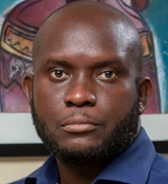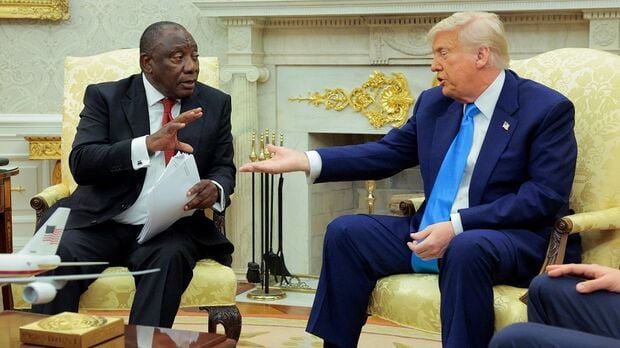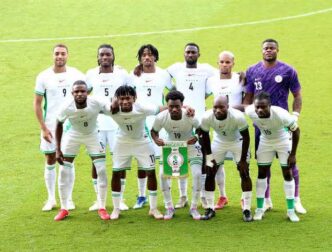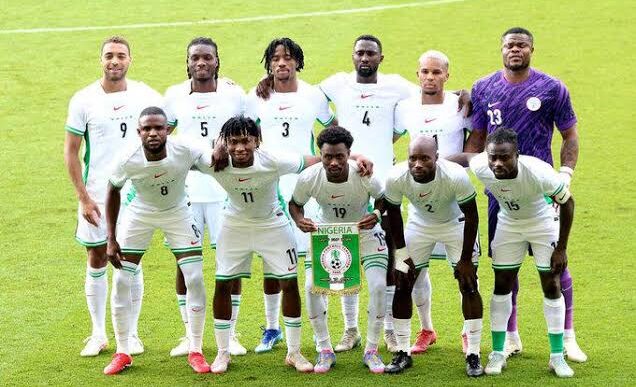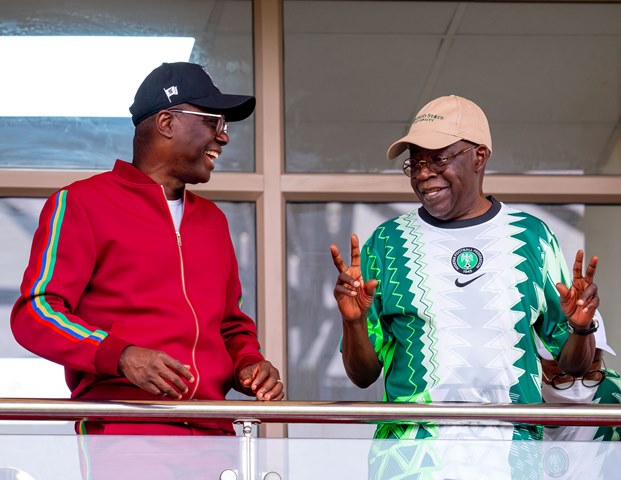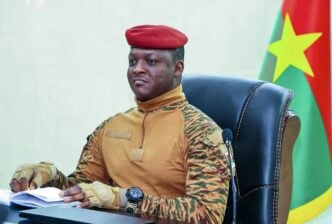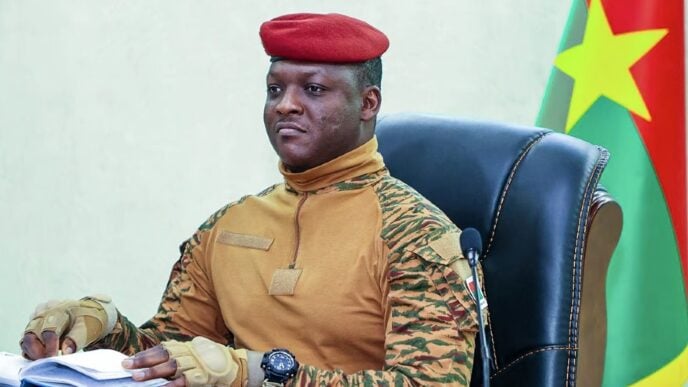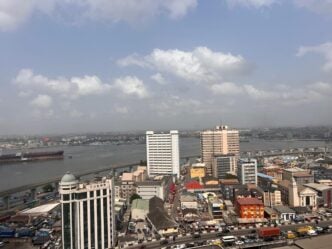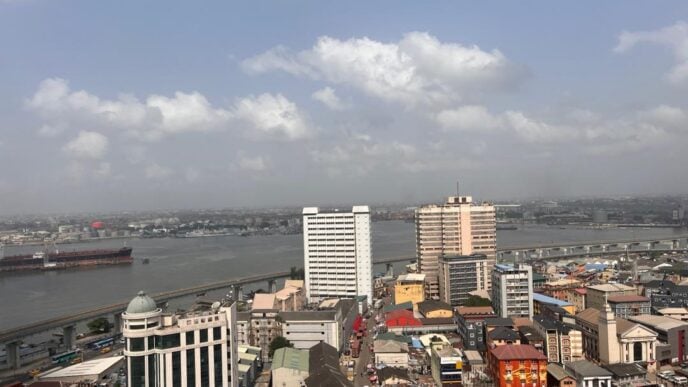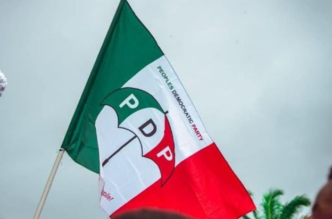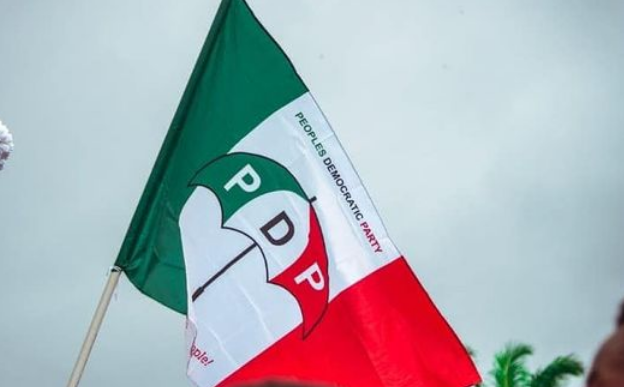“Certainly, the majority of South Africa’s commercial (white) and smallholder farmers really do want to stay in South Africa and make it work” — John Steenhuisen to President Trump (May 21, 2025)
At the recent United States Oval Office visit by President Cyril Ramaphosa of South Africa on May 21, 2025, the ‘rainbow nation’ approach of his government was an effective diplomatic tool in managing what could have a diplomatic discomfiture from his host, President Donald Trump. The quote above by John Steenhuisen, South Africa’s agriculture minister who is from the white/Afrikaner community in South Africa, visually proved effective in responding to videos and briefing by President Trump about how the white population and farmers were specifically targeted by criminal gangs in majority-black South Africa. This incident once again proves how effective diversity management- not tokenism, can be in not only effective diplomacy, but also in governance and business management, especially in developing parts of the world where improved governance and management are most required.
For context, diversity management involves the implementation of policies and strategies that promotes inclusion, equity and sense of belonging, especially in environments with people of different demographics and opinions. Other Afrikaners among President Ramaphosa’s delegation included famous golfers Ernie Els and Retief Goosen, as well as billionaire businessman and founder of FirstRand Bank, Johann Rupert, who emphasized to President Trump that ‘we have too many deaths, and it’s across the board; it’s not only white farmers’.
Any doubts about the potency of aspects of diversity management can be cleared with glimpses from the June 5, 2025, Oval Office visit by German Chancellor Fredrich Merz, where he presented President Trump with a copy of Trump’s grandfather’s birth certificate. Friedrich Trump was born in Kallstadt, Germany, in 1869 and later immigrated to the United States. Merz further leaned on the Trump family German origins for diplomatic gain to stress that ‘And so, with your German provenance, I think this is a very good basis for close cooperation between America and Germany’. A somewhat pleased President Trump responded with ‘That’s serious German,…I want to thank you for that. That’s beautiful. Thank you very much. Fantastic. We’ll put it up in a place of honour’. When compared with the eventful encounter that President Zelensky of Ukraine had when he visited the Oval Office on February 28, 2025, then the positive effects of Chancellor Merz’s efforts become more pronounced.
Advertisement
Why then single out Africa for analysis, especially with diversity, equity and inclusion (DEI) policies being rolled back by the current U.S. administration?
Research across the African continent has identified conflict and insecurity as one of the major causative factors for development gaps across the continent. The African Union (AU) in acknowledgement of this adopted the “AU Master Roadmap (AUMR) of Practical Steps to Silencing the Guns in Africa by 2020’ in 2017. The ‘Silencing the Guns by 2020’ is part of the AU Agenda 2063, the continent’s development blueprint to achieve inclusive and sustainable socioeconomic development over a 50-year period. There is an AU Peace Fund (AUPF), which is one of the operational tools to finance the peace and security activities, as part of the more expansive African Peace and Security Architecture (APSA).
If the surface of most conflicts in the continent is scratched, a lot of it has to do with diversity management related issues. The raging conflict in Sudan, which can be analyzed back to diversity related issues that led to the creation of majority-black South Sudan in 2011, as well as Darfur crisis, has claimed over 150,000 lives and displaced more than 11 million by some estimates since the current conflict began in 2023, is largely between different Arab social formations. The conflict in Ethiopia’s Tigray region between 2020 – 2022, which led to the death of 600,000 people, and the cost of reconstruction and rehabilitation of private and public properties estimated at about $25 billion, was driven by diversity mismanagement. The conflict in Goma, North Kivu province of eastern Democratic Republic of Congo (DRC), which has been ongoing intermittently for years, is largely influenced by identity issues around Tutsis in the province, as well as neighbouring Rwanda, especially after the 1994 genocide. In the Sahel, a combination of political demands by the Tuaregs and other outstanding political issues, have led to conflicts, military coups and an estimated 3.7 million people becoming internally displaced. These are some of the types of conflict that influenced the ‘Silencing the Guns’ multilateral policy, to enhance the feasibility of Agenda 2063 being attained in Africa.
Advertisement
The mismanagement of diversity that leads to conflict is not peculiar to Africa. In Europe, the current conflict between Russia and Ukraine, which began with Russia’s annexation of Crimea in 2014 and subsequently other parts of Ukraine in 2022, was somewhat justified under the desire of some ethnic Russians in Ukraine to join Russia due to alleged political grievances. The conflict has led to almost 1 million dead and wounded, with over 8 million people displaced according to estimates, with Ukraine requiring about $524 billion for reconstruction and recovery over the next decade, according to the World Bank. The conflict and its diversity related issues bear some similarities with both the first and second world wars that were fought mostly in Europe, with estimated human casualties of 10 million, and over 60 million, respectively.
The establishment of the League of Nations in 1920 after WW I and both the United Nations (UN) in 1945 and what became the European Union (EU) in 1951 after WW II, provided institutional frameworks for political representation, diversity management and diplomatic engagements that have not only guaranteed peace and development in Europe, but also prevented another world war. The EU has therefore politically managed its diversity properly after both wars, with its 449 million people across 27 countries having a combined economy of $19.9 trillion, and per capita of $44,220, transforming it to the world’s largest middle income political union. The manner in which the United Kingdom retained its pound sterling currency when it was an EU member state, the peaceful nature of its exit from the union (Brexit) in 2020, and current attempts at increasing economic and defence cooperation with the EU, is further evidence of how effective diversity management can enable agile diplomacy, political stability and economic development.
The diverse nature of President Ramaphosa’s delegation in his recent Oval Office visit, which was also structurally enabled by the establishment of a coalition government after the 2024 elections that saw the ruling ANC unable to win a majority, has perhaps strengthened the ‘Rainbow nation’ construct of post-apartheid South Africa as envisioned by Archbishop Desmond Tutu, and politically promoted by Nelson Mandela as President. This has ensured that the majority black population manages the affairs of the country together with its white, Asian/Indian, Jewish, Chinese and other communities. It has also contributed somewhat to South Africa’s economy of $410 billion and per capita of $6,000 becoming Africa’s largest economy and one of its richest per person.
Globalization, which has significantly increased in the past decades, is enabled by faster means of movement of people, and communication technology. This increasing convergence, and the diversity that flows from it, have made diversity management important for not only political governance, but also a key training component for business schools and private sector management.
Advertisement
Despite its proven importance, some African governments however use tokenism- essentially halfhearted, insincere and embellished efforts, as against proper diversity management principles, in managing their political affairs. Tokenism, however, has failed, leading to very charged and combustive political environments that become unconducive for peace, stability, investment and development. There is therefore the need for the AU to support the inclusion of constitutional proportional representation in national governments, as well as significant devolution of powers to subnational governments and regions in African countries. With this, national elections will most likely become less contentious, as elections do sometimes lead to conflict across the continent, contrary to the democratic theory of peaceful change of government. Most countries in the EU have political systems with proportional representation and devolution of powers, with the U.S. also having its electoral college and strong subnational government as part of their constitutional arrangements for political stability and economic development. The UK has a similar political system, with a Scottish Parliament and government.
One of the more prominent theories of international relations posits that the domestic condition of a country affects its international affairs. If a country’s political system is stable, there are higher chances of peace and development, allowing for more effective and beneficial international relations. Therefore, African countries desirous of more effective and beneficial international relations may be best served with constitutional arrangements that promote proportional representation and devolution of powers.
Promoting diversity management does not mean that certain historical injustices in the continent, such as the white community with 7.20 percent of the population of the resource-rich South Africa owning 73 percent of the choice land due to the political economy of colonialism and apartheid, are to be forgotten. Addressing such political economic situations however requires tact, as the example of political events in Uganda and Kenya in the 1960 and 1970’s, best characterized by expulsion order by President Idi Amin in 1972, led to the emigration of thousands of Africans with Asian origin from both countries showed. The economic and business impact of such forced emigrations were not positive, leading President Yoweri Museveni in 1986 to encourage those expelled to return to Uganda and reclaim their homes and businesses, as part of economic rebuilding efforts. President Uhuru Kenyatta of Kenya in July 2017, officially designated Kenyans of Indian descent as the 44th demographic group in the country, in acknowledgement of their socioeconomic and political contribution to the development of Kenya.
As President Ramaphosa highlighted during his U.S. visit, there are significant negative socioeconomic effects when international companies and investors divest from his country and continent. However, investors making long-term investment, and skilled workers, sometimes need legal incentives such as long-term residency and efficient citizenship rights and pathways to complement their planning process. Though not always an efficient process, it nonetheless can be complemented by an increase in the expanded vision of what contemporary Africa is, especially with increased globalization. Former U.S. President Obama had a Kenyan father, while former U.S. Vice President Kamala Harris’s father is of Afro-Caribbean descent. Former UK Prime Minister Rishi Sunak’s parents were born in East Africa. This is the expanded vision of the continent that its political leaders need to promote, to further enhance diversity management and inclusion. It may also encourage the resolution of the somewhat dynamic nature of identification that many Arab majority countries on the continent display, as Arab homogeneity has neither resolved the conflict in Sudan, nor prevented the inability of the Arab Maghreb Union (AMU) to function as a unified regional economic community of the AU since its establishment in 1989.
Advertisement
The AU had commendably provided some headway to this expanded vision, such as the designation of Africa’s Diaspora as the ‘6th Region’ of the union and continent, ‘Consisting of people of African origin living outside the continent, irrespective of their citizenship and nationality and who are willing to contribute to the development of the continent and the building of the African Union’, with a Diaspora Division established within the AU. This arose from the AU’s ‘Declaration of the Global African Diaspora Summit’ at Sandton, South Africa on May 25, 2012. Continental multilateral institutions such as African Export-Import Bank (Afreximbank) under the leadership of its President Prof. Benedict Oramah, have followed through on this expanded vision. The annual AfriCaribbean Trade and Investment Forum which began in 2022, the October 2023 adoption of Afreximbank’s Pan-African Payment and Settlement System (PAPSS) by the Governors of the Central Banks in the Caribbean (CARICOM) region for intra-regional transactions, the partnership memorandum with the Caribbean Export Development Agency (CEDA) to formalise collaboration between the two institutions in June 2024, and the ongoing construction of the first-ever state-of-the-art Afreximbank African Trade Centre (AATC) in the Caribbean at Barbados, are some of the practical steps that the Prof. Oramah led Afreximbank have taken in expanding the vision of a more inclusive Africa.
President Ramaphosa’s calm but firm diplomatic conduct during his May 2025 Oval Office meeting has provided additional tips on practical approaches for successful diplomatic engagements, especially in contemporary times. Though the current U.S. administration strongly opposes DEI policies, it was obvious that the push back from John Steenhuisen, South Africa’s agriculture minister who is white/Afrikaner and from a political party different from Ramaphosa’s ANC, proved effective in countering submissions by President Trump that white South African farmers have been special targets of criminals and violent attacks. This demonstrates the effectiveness of diversity management-not tokenism, in diplomacy, governance and business management in Africa, like in Europe and other parts of the world. Proportional representation at national levels, plus significant devolution of powers to subnational governments and political structures that reduce political tension, will help the African Union meet its ‘Silencing the Guns’ project, attain the objectives of African Continental Free Trade Area- the world’s largest free trade area, and its Agenda 2063 for’ transforming Africa into the global powerhouse of the future’.
Advertisement
Dr. Uwanaka writes from African University of Science and Technology, Abuja. [email protected].
Advertisement
Views expressed by contributors are strictly personal and not of TheCable.
